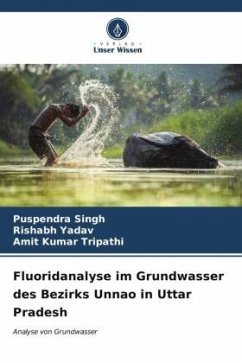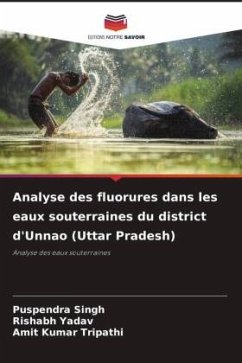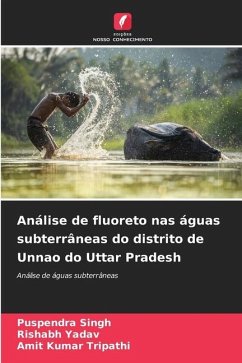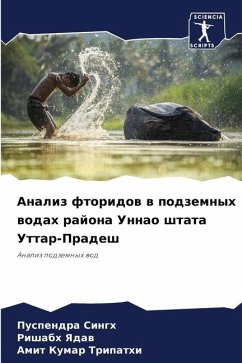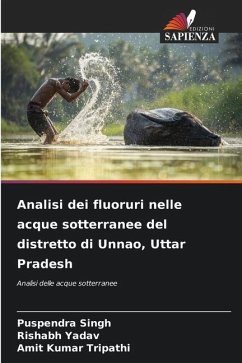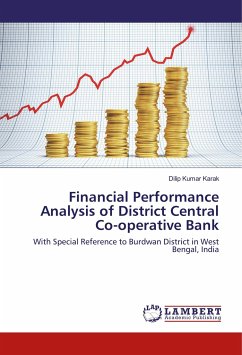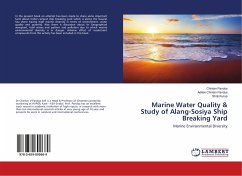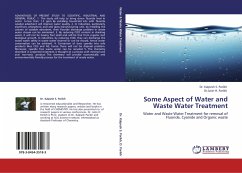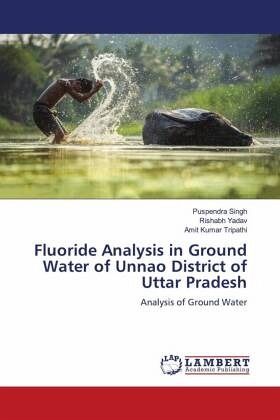
Fluoride Analysis in Ground Water of Unnao District of Uttar Pradesh
Analysis of Ground Water
Versandkostenfrei!
Versandfertig in 6-10 Tagen
45,99 €
inkl. MwSt.

PAYBACK Punkte
23 °P sammeln!
The health of millions of people worldwide is negatively impacted by chronic exposure to elevated concentrations of geogenic fluoride in groundwater. By this health effects including dental mottling and skeletal fluorosis, the World Health Organization maintains a maximum guideline of 1.5 mg/L in drinking water. As groundwater quality were not regularly tested in many of areas, it is often that the unknown if the water in a given well or spring contains harmful levels of fluoride. Here we present a state-of-the-art global fluoride hazard map based on a machine of learning and the hotspots indi...
The health of millions of people worldwide is negatively impacted by chronic exposure to elevated concentrations of geogenic fluoride in groundwater. By this health effects including dental mottling and skeletal fluorosis, the World Health Organization maintains a maximum guideline of 1.5 mg/L in drinking water. As groundwater quality were not regularly tested in many of areas, it is often that the unknown if the water in a given well or spring contains harmful levels of fluoride. Here we present a state-of-the-art global fluoride hazard map based on a machine of learning and the hotspots indicated through the groundwater fluoride hazard map included the parts of central Australia, western North America and eastern Brazil and many areas of Africa and Asia. Of the approximately 180 million people potentially affected worldwide, most reside in Asia (51-59% of total) and Africa (37-46% of total), with the latter representing 6.5% of the continent's population. In Africa contains 14 of the top 20 affected countries in terms of population at risk. We also illuminate and discuss the key globally relevant hydrochemical and environmental factors related to fluoride accumulation.



